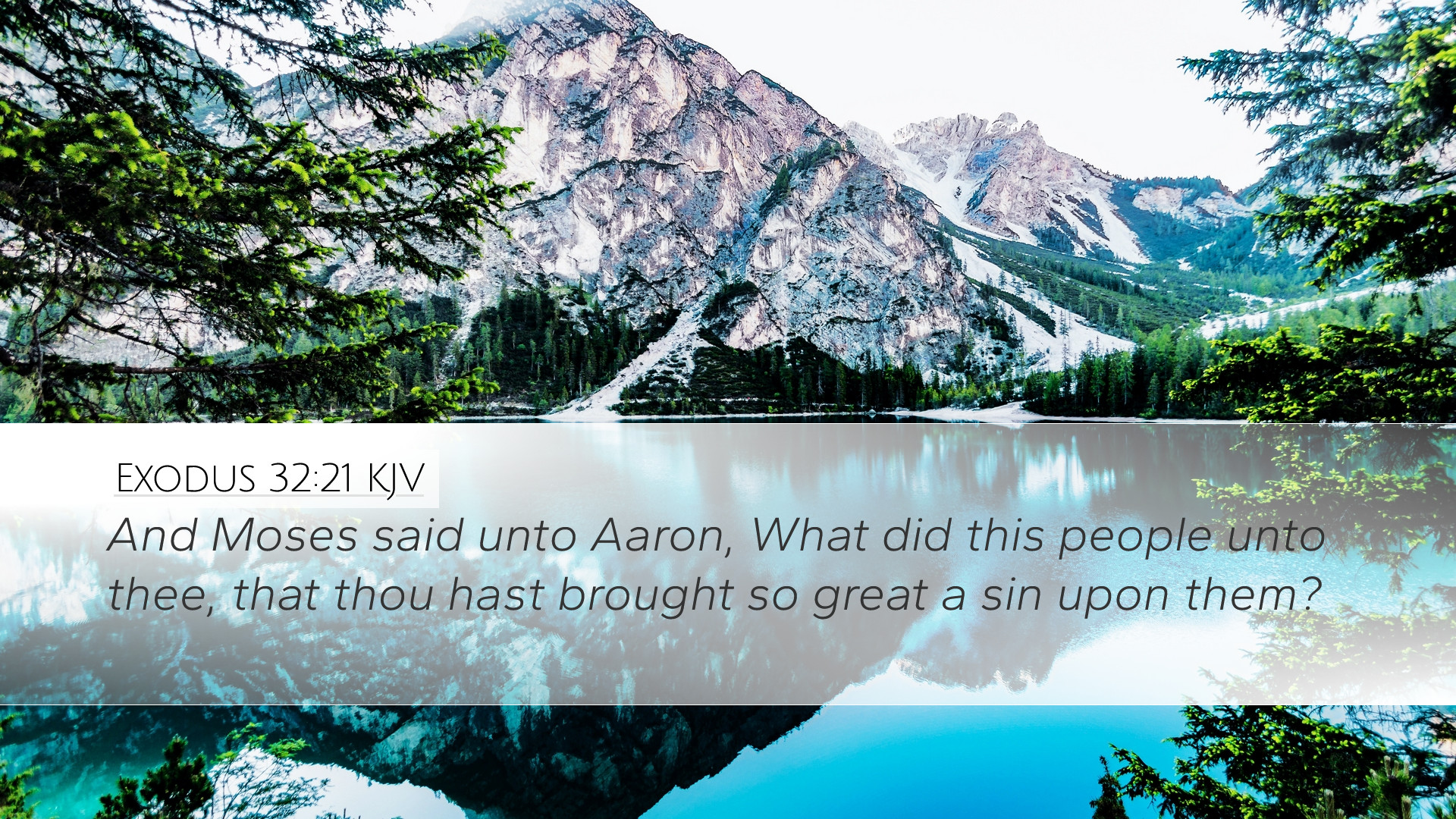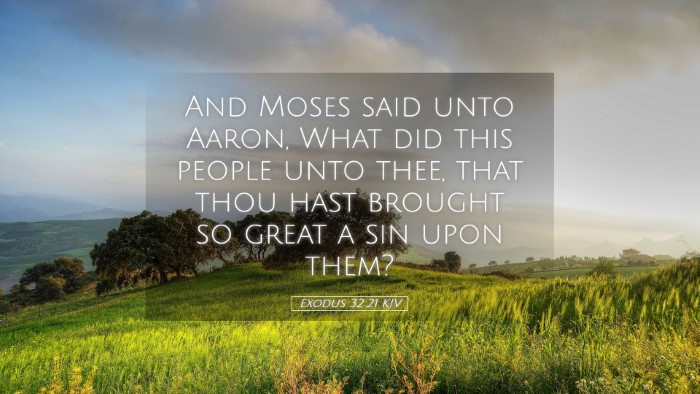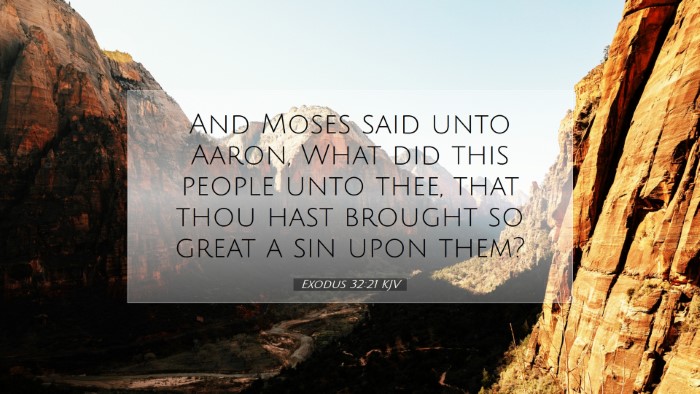Exodus 32:21 - Commentary and Reflection
Verse: "And Moses said unto Aaron, What did this people unto thee, that thou hast brought so great a sin upon them?" (Exodus 32:21)
Overview
The account of Exodus 32:21 occurs in a pivotal moment in the history of Israel. As Moses is on Mount Sinai receiving the Law, the people, in his absence, succumb to fear and impatience, prompting them to create a golden calf. This event profoundly exemplifies human frailty and rebellion against God. In this verse, Moses questions Aaron, highlighting the gravity of the people's actions and the consequences of leadership.
Exegesis of the Verse
This verse raises several key themes related to leadership, accountability, and the nature of sin. Moses, acting as an intercessor, confronts Aaron, marking a significant moment of accountability among leaders. It underscores how leadership can significantly influence the congregation's faithfulness to God.
Insights from Public Domain Commentaries
-
Matthew Henry:
Henry emphasizes the weight of sin that rests on Aaron and the people. He notes that Moses' inquiry reveals a deep concern for the spiritual state of Israel. Henry suggests that the phrase "what did this people unto thee?" signifies that Aaron's leadership failed to inspire trust and obedience towards God.
-
Albert Barnes:
Barnes relates this incident to the nature of human tendency towards idolatry when divine presence seems obscured. He points out that Aaron's role is one of immediate judgment, as Moses seeks to understand how the people could so quickly turn from worshiping God to constructing an idol. This illustrates the fragility of faith when not firmly rooted in God's promises.
-
Adam Clarke:
Clarke provides a detailed analysis of Aaron's character and the leadership challenges faced when authority is questioned. He notes that Aaron's response is pivotal, as it reveals his attempt to deflect blame rather than take responsibility for leading the people astray. Clarke highlights the importance of integrity in leadership and the dangers of succumbing to peer pressure.
Theological Reflections
This verse opens a vital dialogue on the responsibilities of leaders in the faith community. As Moses holds Aaron accountable, it exemplifies a universal truth about the relationship between leadership and the spiritual health of the congregation. Leaders must recognize their significant influence and the sacred trust placed in them.
Furthermore, this encounter serves as a reminder of the consequences of sin. The Israelites were led to sin through inadequate leadership. This illustrates the necessity for leaders to guide with wisdom, integrity, and a strong commitment to God’s commands. The absence of accountability can lead to catastrophic results, as demonstrated in the history of Israel's wandering.
Practical Applications
-
Importance of Leadership:
Church leaders should strive for authenticity and responsibility in their roles. Just as Moses confronted Aaron, church members are called to hold their leaders accountable to the Biblical standards of conduct.
-
Community in Worship:
The golden calf incident underlines the need for communities to engage actively in true worship, focusing on God rather than tangible representations. Leaders must cultivate a culture of worship grounded in truth, avoiding the temptation of idolatry in any form.
-
Navigating Difficulties:
Like the Israelites, communities today face trials that can lead them astray. Leaders must be equipped to guide their congregations through crises with faithfulness and reliance on God’s Word.
Conclusion
Exodus 32:21 serves as a compelling reminder of the consequences of sin and the critical role of leadership in guiding a community towards fidelity to God. In the complexities of ministry, the call is clear: leaders must commit to accountability, foster a community of faith, and model unwavering devotion to God amid cultural pressures to conform. This incident offers an important lesson for pastors, students, theologians, and Bible scholars: the pursuit of holiness is a collective endeavor rooted in steadfast leadership and communal worship.


